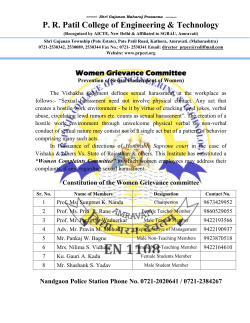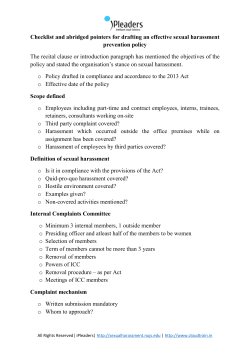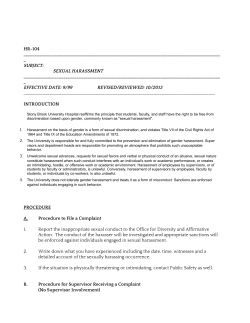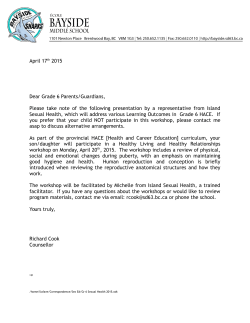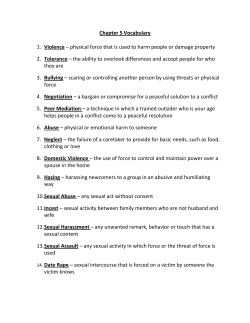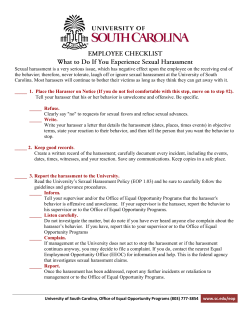
משרד התרבות והספורט
Sexual harassment and its attendant abuse infringe upon human dignity, freedom, privacy and equality between the sexes; therefore this conduct is prohibited by law in any place and in any manner whatsoever. Maximum punishment: The maximum punishment for harassment and/or abuse is two to four years imprisonment. To whom does the law relate? Harassment and abuse can be perpetrated by men and women alike, and can be aimed at both sexes. Prohibited acts: Sexual overtures or references to a person who does not want them, or while exploiting a position of authority, as well as degradation and humiliation of a sexual nature or based on a person’s sexuality are liable to constitute sexual harassment. For this behavior to constitute sexual harassment it must be of a sexual nature (therefore an invitation for coffee or a compliment on a haircut are usually not deemed harassment), but the behavior need not stem from sexual motivations or serve sexual purposes (for example, acts that are committed in order to humiliate, bully, pursue or intimidate can constitute harassment). The following acts are prohibited, even if only committed once: ● Blackmailing by means of threats to coerce acts of a sexual nature. ● An indecent act (an act committed for the purpose of sexual humiliation, sexual stimulation or sexual satisfaction, which is performed without the consent of the complainant), or a humiliating or degrading reference aimed at a person with regard to his/her gender (i.e., his/her being a man or a woman), to his/her sexuality or to his/her sexual inclination. The following acts are prohibited only when ALL the following circumstances exist (cumulatively): ● References that focus on sexuality or repeated overtures of a sexual nature. ● The person to whom the references or overtures are addressed has indicated to the harasser (clearly − in words or conduct) that he does not welcome them. ● The harasser continues to make the references / overtures even after the person has indicated that he does not welcome them. In cases in which the references or overtures are committed while exploiting a relationship of unequal power (for example, between an employee and his supervisor) − the repeated overtures constitute an offense, even if the person to whom the references or overtures are addressed did not indicate that he does not welcome them. Prohibited abuse Abuse that originates in sexual harassment or in a complaint or claim that was submitted due to sexual harassment. What is not considered sexual harassment? Any type of non-sexual interaction and courting that is conducted in good spirit, with mutual consent. English translation by the Ministry of Immigrant Absorption Design: To whom should a complaint be submitted? The complainant can choose all or some of the following options: ● Contacting the Coordinator for the Advancement of Women in the government ministry or the government hospital. Alternatively, contacting the Director of the Department for the Advancement and Integration of Women in the Civil Service Commission, or the Disciplinary Division of the Civil Service. ● A complaint can be submitted to the police (a criminal proceeding). ● Compensation of up to NIS 50,000 can be claimed without the need to prove damage, and additional compensation can be claimed for proven damage (a civil suit [a tort] in a court or in a Labor Court, if the harassment occurred in a work related environment).
© Copyright 2025
